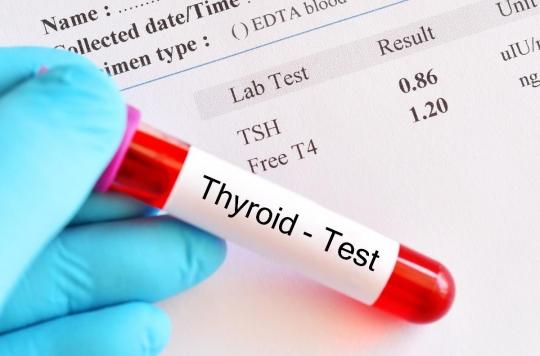This new diagnostic method would be faster and more accurate. It is based on the analysis of the molecular fingerprint of cancer.

A study could revolutionize the diagnosis of thyroid cancer. In Proceedings of the National Academy of ScienceAmerican scientists show that looking for certain molecular fingerprints during biopsies makes it possible to obtain more reliable results and to avoid unnecessary removal of the gland.
Tests not always reliable
Today, to establish the diagnosis of thyroid cancer, doctors perform a fine needle puncture. This biopsy technique makes it possible to take a sample of thyroid tissue and look for traces of a possible tumor. In about one out of five cases, the examination does not make it possible to determine whether or not the patient has cancer. This sometimes forces doctors to make the decision to perform preventive removal of the thyroid gland.
In this research, researchers took thyroid tissue from 178 people with and without thyroid cancer. This allowed them to determine a molecular fingerprint of the disease. They then tested the validity of their new test model on 68 patients. All had already undergone a fine needle puncture, it had been inconclusive for a third of them. The error rate of the new test was 1/10. Compared to the biopsy usually performed, this new examination would avoid 17 unnecessary operations. The method is also said to be faster than the traditional test. For the time being, the researchers must continue to work on their test and plan a future study over two years to validate it.
A curable cancer
In France, the thyroid cancer affects approximately 10,000 people each year. Treatment involves removing the thyroid and then taking medication to help maintain hormone production. 90% of patients recover and few suffer recurrences.

.















